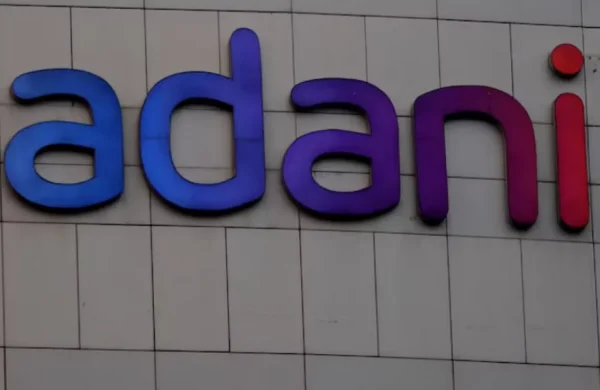Can Bangladesh amend or terminate its deal with Adani Power?
- Update Time : Friday, November 22, 2024

Several clauses heavily favour Adani and raise financial concerns
Bangladesh must pay $450m annually even if it imports no electricity
TDS Desk
The electricity purchase agreement between Bangladesh and Adani Power, a subsidiary of India’s Adani Group, has come under renewed scrutiny following a directive from the High Court for the formation of a high-level committee to review the deal.
As questions arise about the financial and legal ramifications of the agreement, Bangladesh Power Development Board (BPDB) Chairman Md Rezaul Karim told late on Wednesday that it was too early to say whether the agreement would be annulled or revised after its review.
“Not just [the one with] Adani, but terminating any contract during its term is very complex. It would require going to international courts, and there are numerous processes involved.”
Therefore, whether the agreement with Adani would be cancelled or amended could not be determined at this point, Rezaul reiterated.
“First, we need to examine the contract to identify any issues or defaults. Since the High Court has directed the formation of a review committee, we should let it begin its work. Based on its findings, appropriate actions will be taken,” the BPDB chairman said.
“This contract was signed in 2017. Those involved at the time can provide better explanations. I joined in September this year and have not yet reviewed the agreement with Adani. So I cannot comment further on it now,” he added.
The BPDB signed the power purchase agreement with Adani Power on November 5, 2017 for 1,496 megawatts of electricity.
According to sources familiar with the matter, the deal was shrouded in secrecy. The draft of the contract had not been sent to other government departments for review or even shared within the BPDB in advance, which is a deviation from standard procedures for international agreements or protocols.
A BPDB official, on condition of anonymity, said the contract with Adani had been signed in extreme confidentiality.
“Reportedly, then-BPDB chairman Khaled Mahmood signed the deal but was not given the opportunity to review the contract and was merely instructed by the Ministry of Power and Energy to sign it. Consequently, no power sector officials were aware of the clauses in the agreement. Then-power secretary Dr Ahmad Kaikaus oversaw the deal with Adani Power,” the official told this correspondent.
LITANY OF ISSUES
Despite the secrecy surrounding the deal, problems in the contract came to light in 2022.
Signed under the Quick Enhancement of Electricity and Energy Supply (Special Provisions), 2010, which permits no-bid agreements, the contract includes several problematic clauses. Reports from various media outlets highlighted several issues.
Under Clause 3.1(b), if the BPDB purchases less than 34% of Adani’s power plant’s capacity, it must pay a penalty.
Then, according to Clause 13.1(g), the BPDB must cover coal costs, shipping and port expenses for any unused electricity.
Meanwhile, Schedule 6, Table C says coal prices will be calculated on the basis of the average of Indonesia’s and Newcastle’s coal price indices, with no upper price limit.
In such agreements, a cap is usually set on the maximum price of electricity if coal prices increase. However, in the agreement with Adani, no such cap exists, which may result in higher coal costs.
Moreover, the cost of electricity will be higher due to factors such as transporting coal by ship from the Adani-owned Australian mine to Adani’s port, instead of using India’s local coal, and then moving it 700 kilometres by rail to the power plant.
Even if Bangladesh imports no electricity, it must pay an annual capacity and maintenance charge of $450 million for 25 years, significantly higher than similar agreements.
Additionally, the contract obliges Bangladesh to pay taxes for Adani Power for the next 25 years. India changed its special economic zone regulations in February 2019 to give Adani’s Godda power plant the benefits of a tax-free zone to promote energy exports, The Washington Post reported on December 9, 2022. The Adani Group kept this tax exemption under wraps during the agreement with Bangladesh. As a result of this exemption, Adani will likely save over $1 billion over the course of the duration of the deal, but since this tax amount was included in the initial agreement, Bangladesh will still have to bear the cost.
Under Articles 16 and 16(a), if Adani fails to supply electricity due to political or natural reasons (force majeure), it faces no penalties. However, the BPDB is not exempt from penalties for similar issues.
A 2018 report by the Institute for Energy Economics and Financial Analysis (IEEFA) estimated that Bangladesh would incur an additional cost of Tk70,000 crore over 25 years by purchasing power from Adani.
Amid protests over reforms to the government job quota system, Sheikh Hasina, who had been in power for a long time, resigned as prime minister and left Bangladesh on August 5. Just a few days later, India amended its electricity export regulations, allowing power generated by Adani’s Godda plant – originally built for 100% export to Bangladesh – to also be sold in India.
According to a Reuters report, a document from India’s Ministry of Power revealed that the 2018 directive permitting electricity supply to “only a neighbouring country” was revised.
The document states that if full or partial production capacity cannot be utilized consistently, the Indian government may authorize the connection of such power plants to the Indian grid to facilitate electricity sales. This change could affect other export-only projects tied to Bangladesh in the future.
IS CANCELLATION EVEN POSSIBLE?
The previously mentioned BPDB official said cancelling the contract with Adani would be a lengthy process.
“Only two years have elapsed in the 25-year agreement,” the official said, adding that if Bangladesh were to cancel the deal unilaterally, it might face international arbitration.
“Factors such as the duration of the process, associated costs and the potential impact on Bangladesh-India relations would need a thorough evaluation.”
The official said the matter would ultimately depend on the Power Division’s decision.
PRESSURE AND THREATS
Since the fall of the Awami League government, various issues have cropped up regarding the electricity supply from Adani’s power plant in Jharkhand. Bangladesh has been pressured over payment of arrears, and Adani has also threatened to suspend power supply.
After the filing of a writ petition in the High Court, it directed the formation of a review committee including international law and energy experts to evaluate the agreement. The court instructed the committee to submit its findings within three months.















